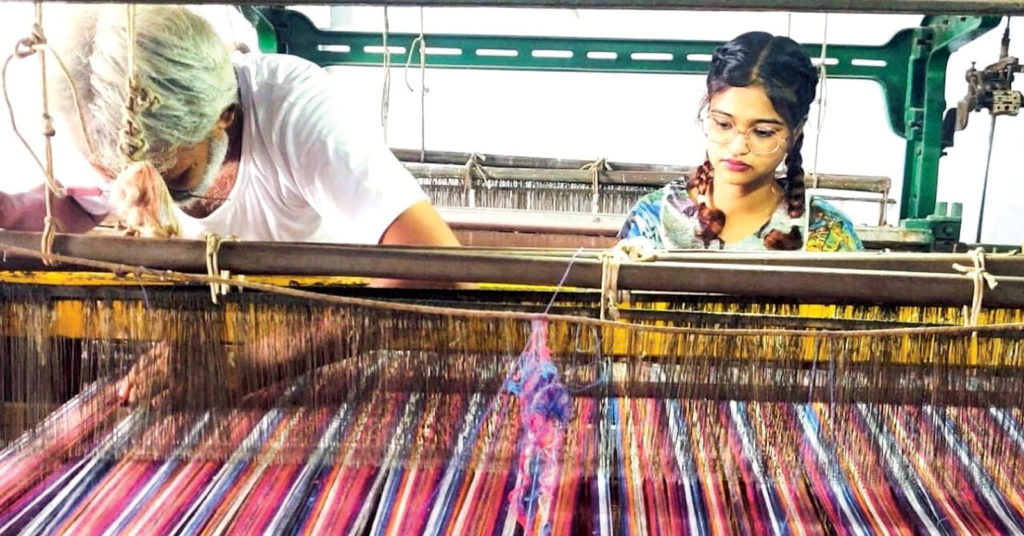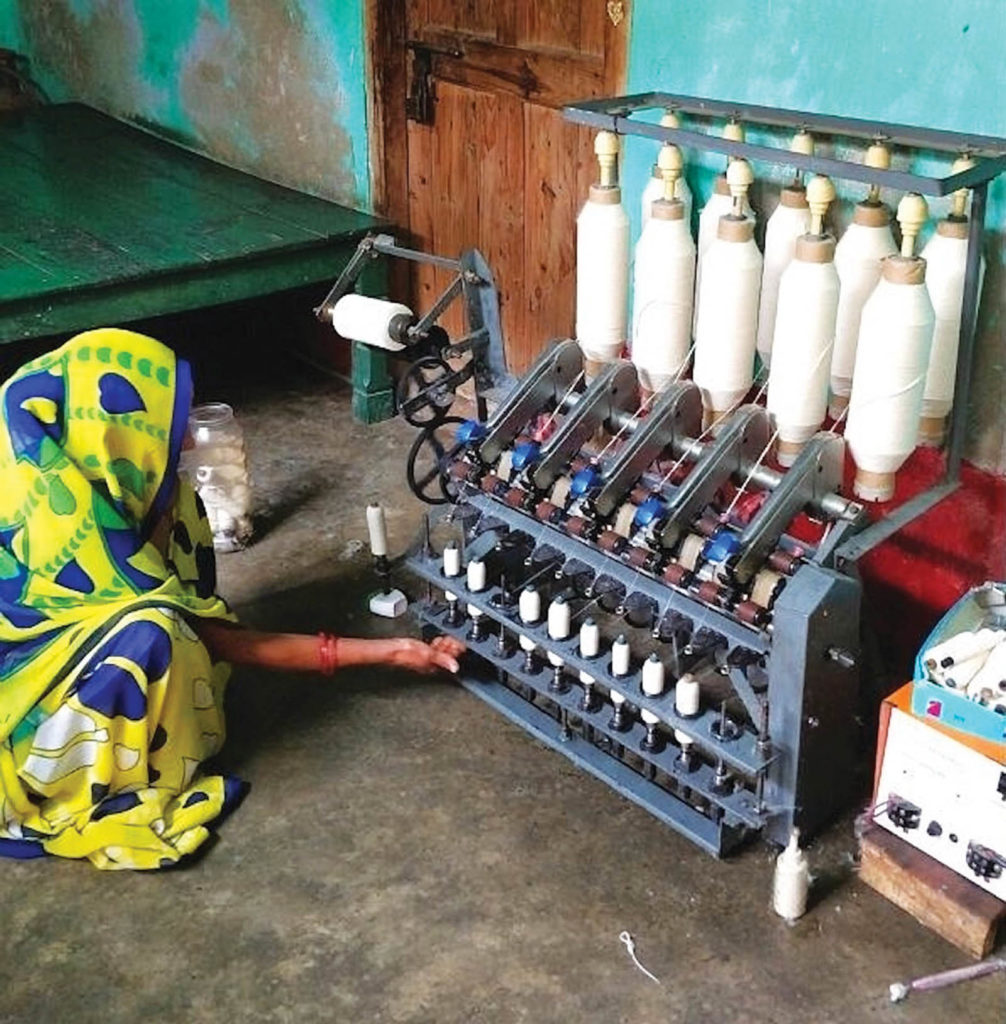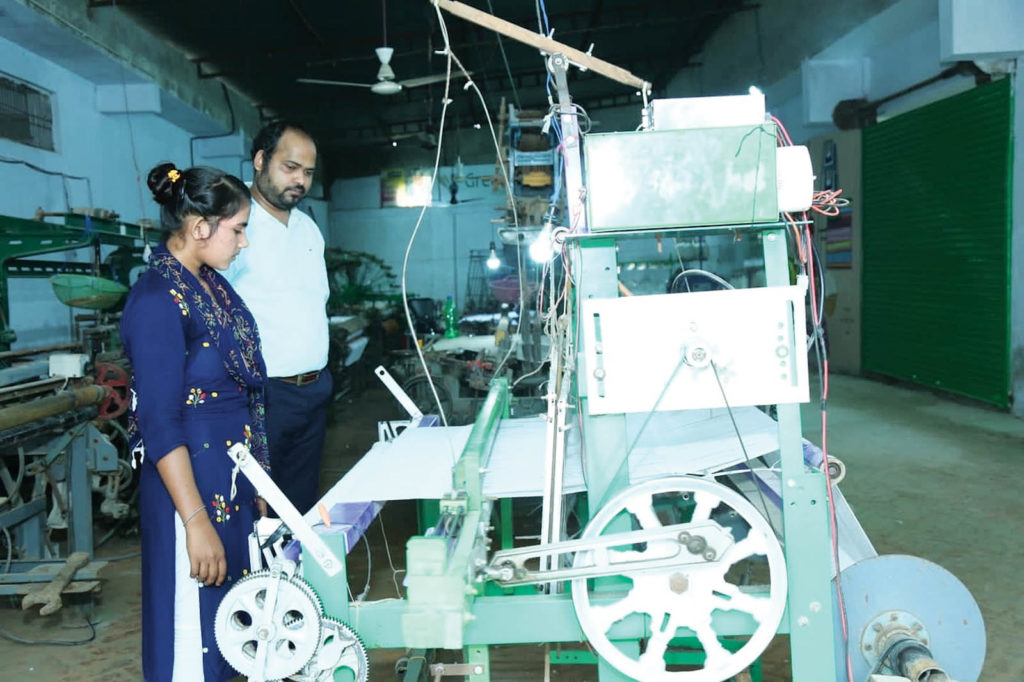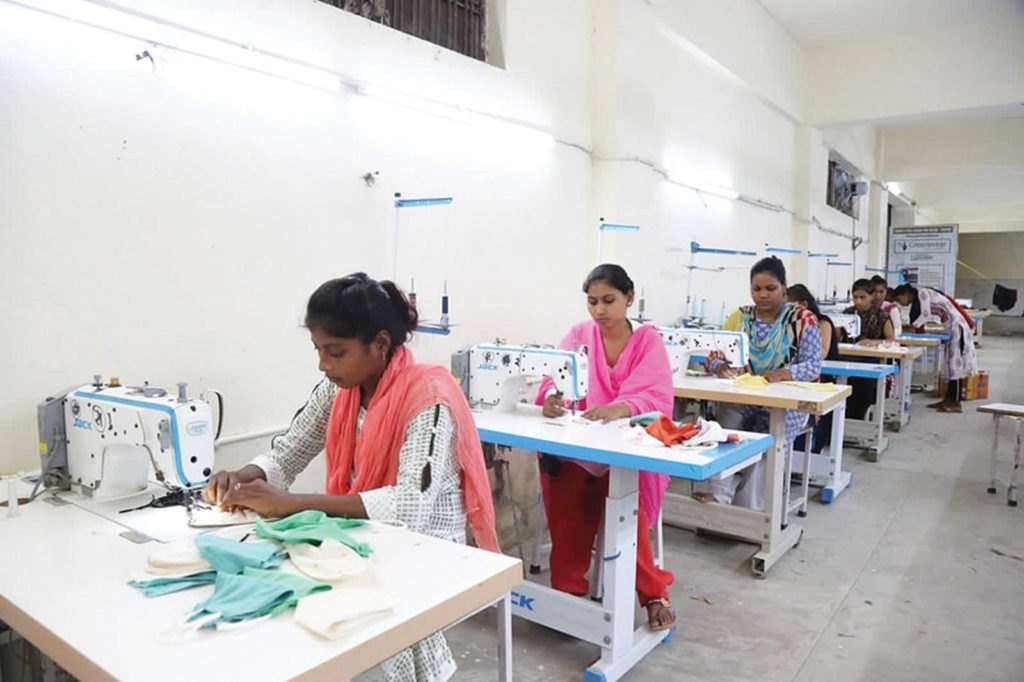
Greenwear Fashion, based in Lucknow, India, is taking sustainability to the next level with help from the sun. The company spins its yarn on solar charkhas or spinning wheels, weaves fabrics on solar looms and stitches garments on solar-powered sewing machines.
Founded in 2016, Greenwear Fashion Private Limited is powered by renewable energy to create high-quality yet affordable textiles and garments.

Greenwear also empowers women by providing “homespun” equipment to rural women enabling them to spin yarns at home, while the fabrics are woven by traditional weavers or trained loom operators. Rural women comprise more than 81 percent of the total female workforce in India.
“Greenwear’s focus since its inception revolved around creating livelihood opportunities for rural women and reducing the fashion industry’s carbon footprint,” says founder and CEO Abhishek Pathak.

Pathak’s inspiration came at the Indian International Trade Fair in 2016, where he first saw a solar charkha designed by IIT-Delhi. The machine was efficient, reduced drudgery, and was powered by clean energy.
In a manual charkha, an operator can only spin 60-100 grams of yarn in an 8-hour day, while with a solar charkha, the spun yarn output can reach the 1-kilogram mark—a little over 2 pounds. One woman can easily run two machines simultaneously and earn more money while working from her home. Greenwear also uses solar-powered looms which are capable of weaving 24 meters of fabric in 8 hours. The company encourages and facilitates existing power loom weavers to convert their looms to solar power.

The solar-powered machines are easy to operate and have no issues with power shortages or energy waste. “I was mindful about going about the operations sustainably, as I was concerned about increasing pollution. I did not want to contribute to environmental degradation in any way. Our primary mission is to create better livelihood opportunities for at least 5,000 rural women through solar charkha-based spinning and allied activities,” Pathak says.
 TEXTILES.ORG
TEXTILES.ORG


